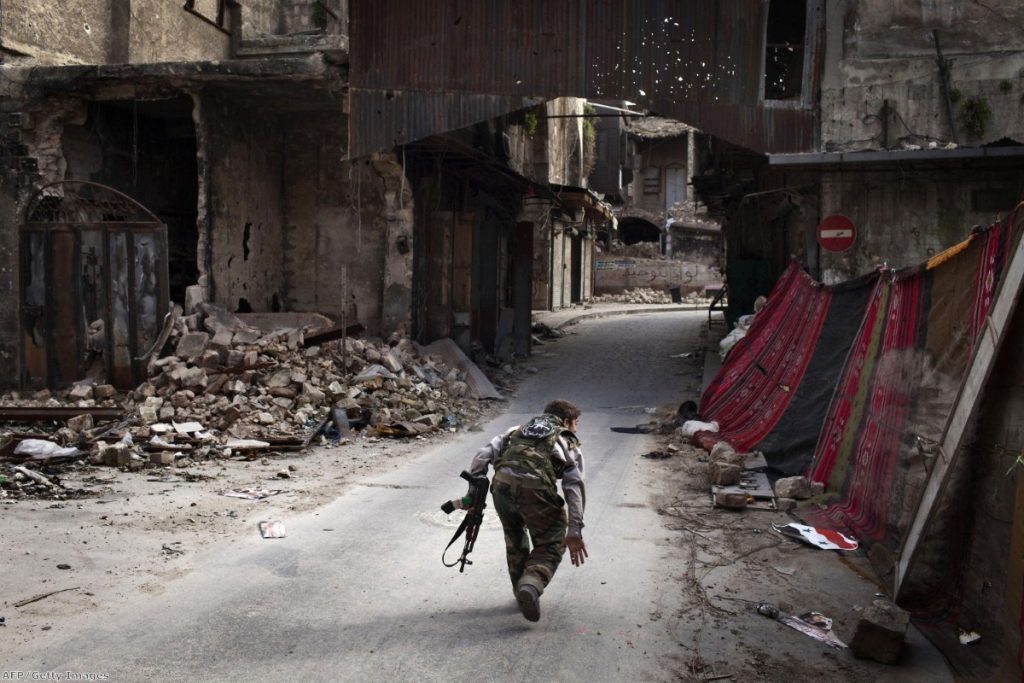Labour could break ranks on Hague’s Syria mission
There were strong signs that Labour was preparing to try and stop coalition efforts to send arms to Syrian rebel groups today, after Ed Miliband raised concerns about the move during PMQs.
The Labour leader's objections to the government's Syria tactics are significant because the two main parties tend to take the same position on foreign affairs questions, particularly in relation to upheavals in the Middle East.
But the questions suggest there is growing discomfort about William Hague's strategy on the Labour benches and raise the prospect of the government being defeated in its efforts to send arms to Syria in the Commons.
Eighty-one Tory MPs have already warned the prime minister of discomfort on the government benches at the plans.


During the exchange Miliband repeatedly asked David Cameron which safeguards he intended to establish to ensure the weapons would only be used to defend civilians.
Cameron twice evaded that question saying "of course" there were safeguards but refusing to divulge what they were.
Elsewhere during the exchange, Cameron appeared to answer the question as if we were referring to training and non-lethal supplies, although it was unclear whether he was being evasive or simply misunderstood.
"I quoted his words not about non-lethal equipment but lethal equipment," Miliband replied.
"My question is: 'What will those safeguards be?' I didn't hear an answer."
The prime minister told the Commons that the end of the EU embargo on arms to Syria was intended to send a message to Syrian president Bashar al-Assad.
"That does help tip the balance so Assad can see he can't win this by military means alone," Cameron said.
That suggests the Foreign Office is dangling the threat of supplying the arms as a means of bringing Assad to the negotiating table, rather than because it actually plans to send the weapons.
"We have made no decision to arm the rebels in Syria," Cameron reiterated.
Miliband asked if the Commons would be given a vote on the decision to arm the rebels, even if parliament had to be recalled over the summer months. Cameron assured him it would.
That raises the possibility of the government being defeated on a foreign policy issue of this magnitude – an extremely rare occurrence.
Hague and delegates from France were almost alone in pushing for the end of the arms embargo in Syria, with most of Whitehall and the EU uncomfortable with the move.
Critics of the idea of supplying arms to the rebels point to horrific human rights violations documented by some opposition supporters.
There are also concerns that with the West supplying one side of the conflict with arms and Russia and China supplying the other, major world powers could inadvertently find themselves in a proxy war in a highly volatile part of the Middle East.
Supporters of arms supplies say weaponry is the best way of protecting civilians and ensuring moderate elements of the opposition have a fighting chance against the more extremist sections within it.
Cameron will be meeting privately with Russian president Vladimir Putin before the G8 summit next week to discuss the issue.
The Downing Street talks set for Sunday will continue "an ongoing and very intense diplomatic crisis" with Russia, the prime minister's spokesperson said.
He could not confirm any progress had been made since the pair met in Sochi several weeks ago.
"Clearly Russia is an important player," the spokesperson added. "We have differences with the Russian government with regard to Syria. However, we want to keep working on how we can crank up the pressure [on Bashar al-Assad's regime]."












